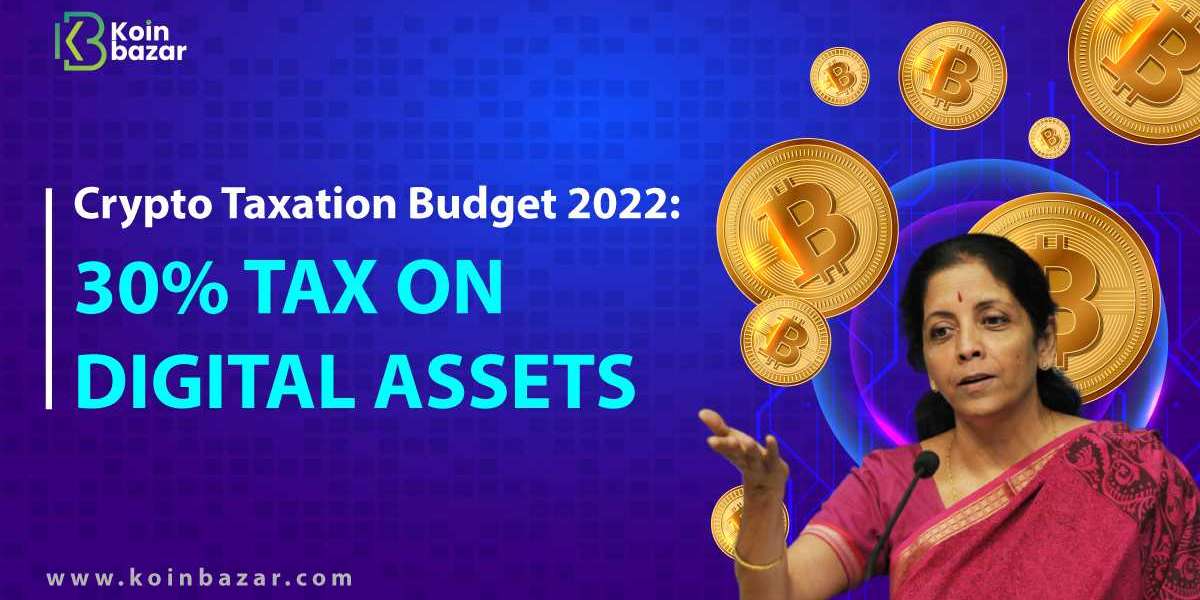Introduction:
In the recent few years, cryptocurrency has grown in popularity in India, and with the skyrocketing value of some cryptocurrencies, such as Bitcoin and Ethereum, crypto traders and experts may have severe tax concerns.
The Union budget for 2022 gave much-needed clarification on how the country will tax digital currencies. India has one of the largest cryptocurrency marketplaces in the world, with over 10 crore cryptocurrency investors. The provision of a tax structure for virtual currency investors has long been a demand of investors.
Then, here you go!!!!!!
Crypto Tax - You Need To Know About It!
Nirmala Sitharaman, the Union Finance Minister of India, declared on Tuesday (1st Feb 2022) that revenue from Digital Asset transfers will be taxed at a rate of 30%, with no deductions or exemptions. This is described as a 'Crypto Tax'
How Does the Taxation System Work?
In addition, the Finance Minister stated that the 30% tax on virtual assets cannot be used to substitute any other source of income (i.e., it cannot be claimed as a deduction) and that a 1% TDS will be paid on payments made with digital assets that help in keeping track of transactions.
The RBI's Central Board recently examined a number of issues, including the condition of the central bank's digital currency. The board was informed by RBI officials that a pilot project for the implementation of CBDC will be initiated soon.
The Reserve Bank of India is currently focusing on two areas: wholesale account-based and retail. While much work has already been done on wholesale accounts, the retail issue is more complex, and the central bank is taking its time with it.
Here's everything you need to know about the Crypto Tax:
- The transfer of any virtual or cryptocurrency assets will be taxed at 30%, according to the Union Budget 2022.
- No deductions other than the cost of acquisition will be allowed to be carried forward, in addition to a 1% TDS that will be imposed on payments made using digital assets in order to keep track of transactions.
- Furthermore, any loss incurred as a result of the transfer of virtual digital assets cannot be offset against any other source of income.
- A gift of a virtual digital asset would likewise be taxed in the recipient's hands, according to the proposal.
- Following the ratification of the Union Budget in Parliament, the tax plans will take effect on April 1.
- She also indicated that the RBI will launch a "Digital Rupee" based on blockchain technology in 2022-23.
- According to experts, the 30% tax rate on revenue derived from the sale of cryptocurrencies is comparable to the tax rate on lottery, game shows, and puzzle winners.
A virtual digital asset, according to the Finance Bill 2022, is any information, code, number, or token (not being Indian or foreign currency), generated through cryptographic means or otherwise, by whatever name called, that provides a digital representation of value stored or traded electronically.
Conclusion:
So, you now have a pretty clear image of the Union Budget 2022: Everything you need to know about the 'crypto tax.'
"It's encouraging to see the government taking a step forward in regulating digital assets. This will dispel many myths about crypto-assets and pave the road for their classification as a distinct asset class."



